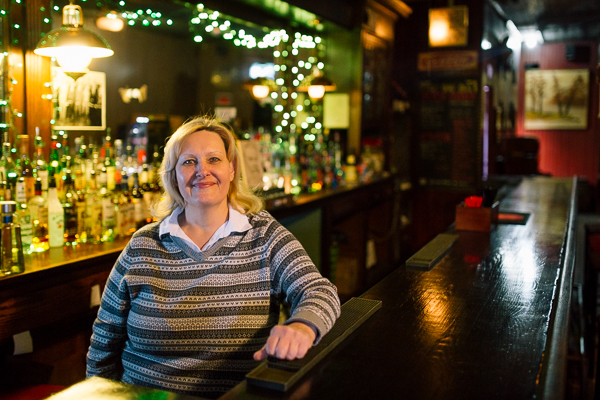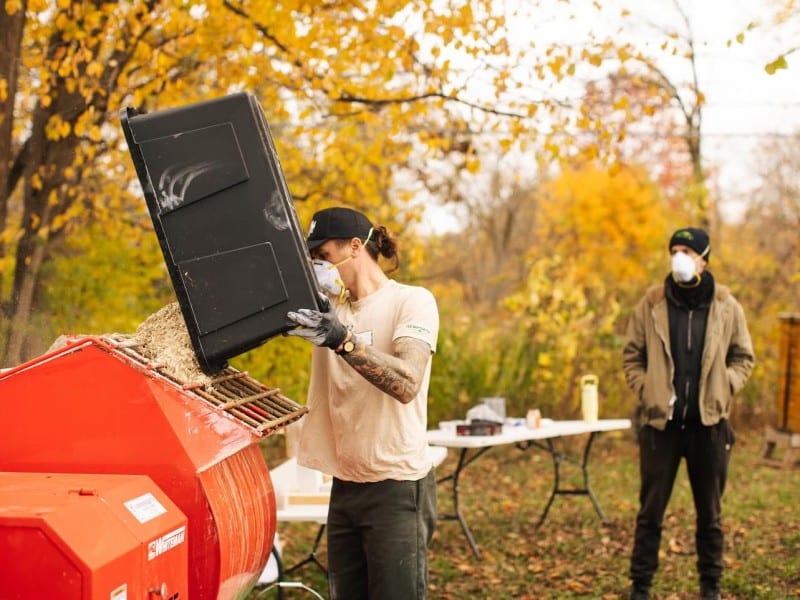In an era of the trendy craft cocktail, Detroit’s neighborhood bar endures
New bars are popping up in Detroit at lightning speed. But several of Detroit's oldest neighborhood hangouts, and some newer spots seeking to emulate that vibe, are still holding steady.

New bars are popping up in Detroit at lightning speed, and curious drinkers are eager to check out the latest opening, the newest cocktail, the hoppiest craft beer.
With all this attention on the new, what will become of the neighborhood bar? That establishment you can walk to, and where you know the owner, bartender, and often the people drinking on either side of you at the counter.
Last June, the Detroit bar scene lost one of its greats in Ron Gurdjian, proprietor of Tom’s Tavern. And with Ron, most likely the bar itself. Just a couple of weeks ago, salty and long-suffering Charleen Dexter retired after 42 years of dishing out advice and middle fingers at The Bronx.
It’s not all maudlin reminiscing, though. Several of Detroit’s oldest neighborhood hangouts are still holding steady after 100-plus years. And in the last few years, while themed extravaganzas may have hogged much of the reporting, some true gems showed up to prove that there is still room in Detroit’s bar scene for a solid, old-fashioned, elbows-down bar.
The “neighborhood vibe” of a great bar is an elusive concept, easy to imitate but tough to maintain. It’s not a simple matter of age, location, or décor. Ultimately, the neighborhood bars that stand the test of time create an alchemy unique to their place, one that offers novelty and comfort in equal amounts.
Take Kiesling, for instance. Industrial Milwaukee Junction doesn’t have a whole lot of housing, and what is there consists of sparsely settled lofts. But despite this, Kiesling managed to nail every aspect of a quality bar without overt fussiness. It’s hip enough for a first date, but not intimidating. It’s chill enough for serious conversations and serious enough about their drinks that a Pisco Sour and a beer-and-whiskey special meet the bartender’s approval with the same nod. The crowd there is pleasantly diverse, too, and has a smart vibe, similar to the décor in the 100-year-old former auto parts plant.
While Kiesling might have its work cut out for it crafting a neighborhood hangout in an area that doesn’t have a whole lot of neighbors (yet), Detroit’s oldest bars have different challenges. Staying at the top of patrons’ minds is crucial, which is easy enough if those patrons have been visiting for decades.
No one knows this better that the Raven Lounge’s Tommy Stephens, whose friends (old and new) make pilgrimages from far away or around the corner to experience the club’s legendary blues and Tommy’s equally legendary hospitality. It’s an old-school temple of music, and patrons dress accordingly — to the nines. But the impressive style on display doesn’t make the place any less welcoming, and the folks who’ve been going to The Raven for decades know that well.
For centenary spots like Abick’s and the Two Way Inn, patrons come from the immediate neighborhood as well as from miles away. The draw for their customers is the tradition of friendly service, no-frills drinks, and companions.
“[These spots] will always be relevant because we’ve got something that all the new kids in town don’t have: history,” says Kit Lindamood, regular bartender at Abick’s. “There’s simply nothing like settling your elbows into 112-year-old grooves on the bar top with a cold beer.”
Being part of the neighborhood for so long makes it a natural fit for older bars like these to host fundraisers when a regular needs assistance, or to help out a cause that impacts their customers. Doing so has definitely helped relative newcomer Ghost Light in Hamtramck to quickly become a staple in what could be a rather crowded scene. With revered spots like Whiskey in the Jar, Painted Lady, and other recent addition Bumbo’s all commanding a solid core of devotees, Ghost Light draws its enthusiasts with improv and open mic nights, local music acts and karaoke.
Owner Darren Shelton says he and his staff “work very hard to be transparent and clear, and to pay artists what they deserve for their work.” This, in turn, bolsters the creative community and “supports artists that are pursuing their creative passions.”
The openness and creativity, Shelton explains, are the keys to maintaining a community space for artists. “We do not simply have ‘Planet Ant People’ that come here,” he says, referring to the Planet Ant Theater and Hall right next door, which host all variety of theater and musical entertainment. “We have an open door to those who want to create and collaborate. Anyone who wants a home here has one.”
Holding down the same corner for a hundred years may help Ye Olde Tap Room on the east side show up on a Google search, but owner Russell Mack knows that it’s the friendly and knowledgeable staff that keep the bar the go-to spot for east side happy hour and late night craft beer quests. Being in spitting distance of Grosse Pointe while tossing peanut shells on the floor helps too.
“The bar owes its longevity to the fact that it is a comfortable, fun place,” Mack says. “All of the antique beer items are interesting to look at and it gives the place a certain warmth. Everyone feels right at home even if it is their first time. It keeps them coming back.”
As with Kiesling, being a neighborhood bar doesn’t necessitate a lot of full-time neighbors. Downtown’s Queens and The Keep exude warmth and comfort for all comers by virtue of laid-back hospitality. Queens’ warm wood paneling and wraparound bar help the place feel homey. And that’s no surprise, since it’s owned by the same folks as Midtown staple Bronx Bar.
Considering that Queens has only been open a little over two years, it’s managed to develop a solid core of regulars who sometimes get a bit protective of their “hidden” gem. They’re also equally delighted to show friends the spot, always a sign of loyal followers.
Just down the road, corner bar The Keep provides bar and restaurant staff from the area with a no-stress place to vent. Most nights, the craft cocktail seekers rub elbows with servers just off their evening shift or on their way to work. The impressive liquor wall is adorned with in-joke mementos and the initials “DFU” (for “Don’t F*ck Up,” the staff’s frequent exhortation to itself).
“We are thought of as a cocktail bar because of our beverage program but really we are just a neighborhood bar in downtown Detroit,” says Leonard Lopp, proprietor of The Keep.
Downtown office workers, an increasing number of tourists, and industry professionals share the cozy underground bar. “Inevitably,” Lopp says, “at some point in the night, we are serving more beers/shots than cocktails. That usually coincides with … service industry folks getting off work for the night. That’s really the time when I feel a real sense of that ‘neighborhood vibe.'”




